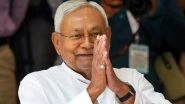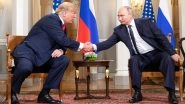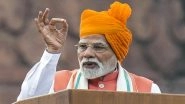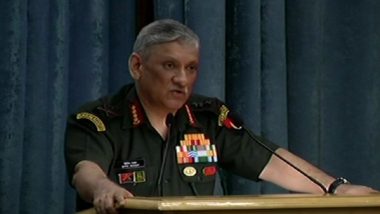New Delhi, November 1: Army Chief General Bipin Rawat on Thursday said that India will continue to maintain security in the Indo-Pacific region and will work alongside with all the powers to promote peace.
Speaking at the event on the evolving geopolitics and the challenges of the Indo-Pacific Region in the capital, Rawat said that the strategic power balance in the Indo-Pacific is dynamic and will continue to remain so in the near future.
"Looking at the evolving geopolitics of Indo-Pacific region, in particular, has been an eventful year so far. The transformational and disruptive nature of international relations has been most evident." S-400 Deal: India Follows an Independent Policy, Says Army Chief Gen Bipin Rawat.
"The evolving geopolitics of Indo-Pacific has been characterised by sanctions against various states and trade fault lines between major trading partners in the world, peaceful negotiations in Korean peninsula and loss of territory for the Islamic state have been the silver linings," he added.
"Our security policy flows from two basic cardinals - we have extraterritorial ambitions and no desire to transplant our ideologies on others," said General Rawat.
Rawat further asserted that India's central position in the Indian Ocean region has enabled deep economic and cultural linkages with the Indo-Pacific countries. Citing examples of India's influence on its neighbours, General Rawat said: "If one looks closely, Japan has a town named after Hindu goddess Lakshmi. Even Buddhism spread from our country not only to China but also to Korean peninsula, South East Asia and Central Asia."
Elaborating further upon the subject, Rawat said, "India's motive is to ensure a conducive internal and external security environment for unhindered economic progress and socio-political development."
Rawat also touched upon South China Sea issue saying, "Contested sovereignty over maritime territories poses a major challenge in East Asia and the South China Sea." "Disputed maritime boundaries are threatening global commons," he added.













 Quickly
Quickly


